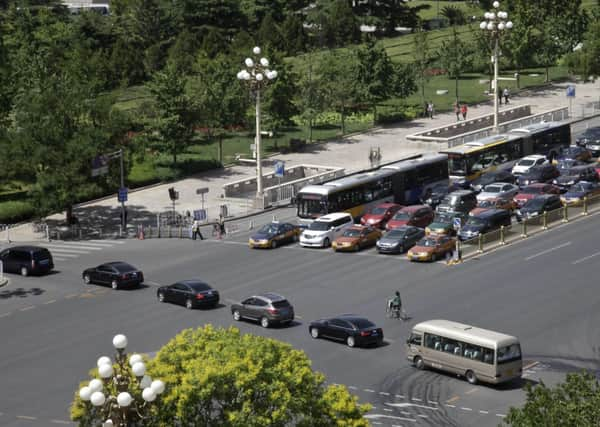Tiananmen Square anniversary sparks crackdown


Police manned checkpoints, and officers and paramilitary troops patrolled pedestrian overpasses and streets surrounding the square in the capital.
The increased security comes on top of heightened restrictions on activists, artists, lawyers and other government critics.
Advertisement
Hide AdAdvertisement
Hide AdDozens have been taken into detention, forced out of Beijing or confined to their homes in other parts of the country.
Environmental activist Wu Lihong, based in Jiangsu province, said: “4 June has come again and the plainclothes officers are here to protect us. I can’t leave the house to travel or lecture.”
Artist and former activist Guo Jian was also taken away by authorities on Sunday, shortly after a profile of him appeared in the Financial Times in commemoration of the anniversary.
As he was being detained, Guo, an Australian citizen, said he would be held until 15 June.
A writer and officer of the Independent Chinese PEN Centre, who writes under the name Ye Du, was also taken from his home in the southern city of Guangzhou to join a forced “tour trip”, his wife Wan Haitao said. Such compulsory trips are a common method of keeping government critics under 24-hour watch without the need for legal proceedings.
In an apparent sign of government nervousness, connections to the internet appeared to have been disrupted, with Google mail and other services mostly inaccessible. China routinely blocks overseas social media sites like Twitter and YouTube.
It also allows no discussion of the events on 3 and 4 June 1989, when soldiers backed by tanks and armoured personnel carrier fought their way into the heart of the city, killing hundreds of unarmed protesters and onlookers. The government has never accounted for its actions.
Beijing’s official verdict is that the student-led protests aimed to topple the ruling Communist Party and plunge China into chaos. Protest leaders said they were merely seeking greater democracy and freedom, along with an end to corruption and favouritism within the party.
Advertisement
Hide AdAdvertisement
Hide AdAsked about the crackdown, Chinese foreign ministry spokesman Hong Lei did not refer directly to Tiananmen Square. He said: “Regarding the political incident which happened in the late 1980s in China, as well as issues related to it, the Chinese government reached a conclusion a long time ago.”
He also denied cases of political persecution, saying: “In China, there are only law offenders. The so-called dissidents as you mentioned do not exist.”
Authorities regularly tighten security ahead of 4 June, but this year is notably harsher.
Activists who previously received no more than a warning have been taken into custody and police have told foreign journalists they would face unspecified serious consequences for covering sensitive issues ahead of the anniversary.
But Tiananmen Square is remembered in Chinese communities worldwide, especially in Hong Kong, which returned to Chinese rule in 1997.
Thousands marched through the city on Sunday and 150,000 people are expected at a candlelight vigil today.